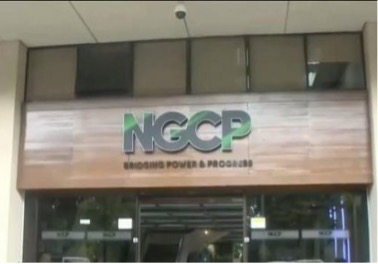NGCP warns of power price spikes over DOE’s ancillary services policy
- June 10, 2021
- 0

The National Grid Corporation of the Philippines (NGCP) warns of “soaring electricity rates” should the Department of Energy (DOE) continue pushing the grid operator to have 100% firm contracting for ancillary services (AS).
NGCP issued the warning in light of what it calls the DOE’s insistence on the dispatch of AS as a response to thin power reserves leading to rotational brownouts, such as what happened last week.
Simply said, AS acts as a spare tire that provides continuous power to a grid even if power plants are down. It is dispatched to stabilize and balance the grid in cases of power supply and demand imbalance.
“Shifting to firm contracting is not the solution to the power supply shortage. We get our power to support AS from the same pool of generators, many of which went on unscheduled shutdowns, and whose current collective output is not enough to meet consumer demand. Signing a firm contract will not make a large capacity power plant magically appear with the stroke of a pen. The only thing that changes is the charging mechanism,” NGCP explained in a statement.
The grid operator further said it has repeatedly clarified that AS is not meant to replace baseload plants or for any long-term or continuous use.
Based on NGCP’s initial simulations, power rates are expected to surge by Php0.64 per kilowatt-hour (kWh) in
Luzon, Php0.54/kWh in Visayas, and Php1.39/kWh in Mindanao. For a household consuming 200kWh, this would mean an additional Php1
28 in electric bills of consumers from Luzon, PhP108 for those in Visayas, and PhP278 for those in Mindanao.
When supply is sufficient, meanwhile, it is meant to run only long enough to bridge the gap between the time a power supply shortage begins and the time replacement power can be scheduled by the Independent Electricity Market Operator of the Philippines (IEMOP), usually within the succeeding hour or two. It should not run for days, weeks, or months on end without violating Republic Act 9136 or the Electric Power Industry Reform Act (EPIRA) and prevailing regulatory approvals.
IEMOP governs the Wholesale Electricity Spot Market.
“Contracting diesel-run power plants for AS, especially if the diesel plants are decrepit and inefficient, will not only be counterproductive, it will drastically hike electricity rates. AS costs are pass-on costs that NGCP does not profit from,” NGCP added.
The grid operator has sought the Energy Regulatory Commission’s intervention in the matter, particularly the opportunity to study the AS policy and its full impact on power consumers. It also called for the building of more baseload power plants to meet demand.
“NGCP does not deny its obligation to secure sufficient AS. This obligation is clear. We only ask that this be thoroughly studied, and the price impact be given primary consideration. With consumers already reeling from the economic effects of the pandemic, industry leaders should think before pushing a procurement strategy that can be, at best, described as anti-poor, and at worst, basis for charges of plunder,” the grid firm stressed.